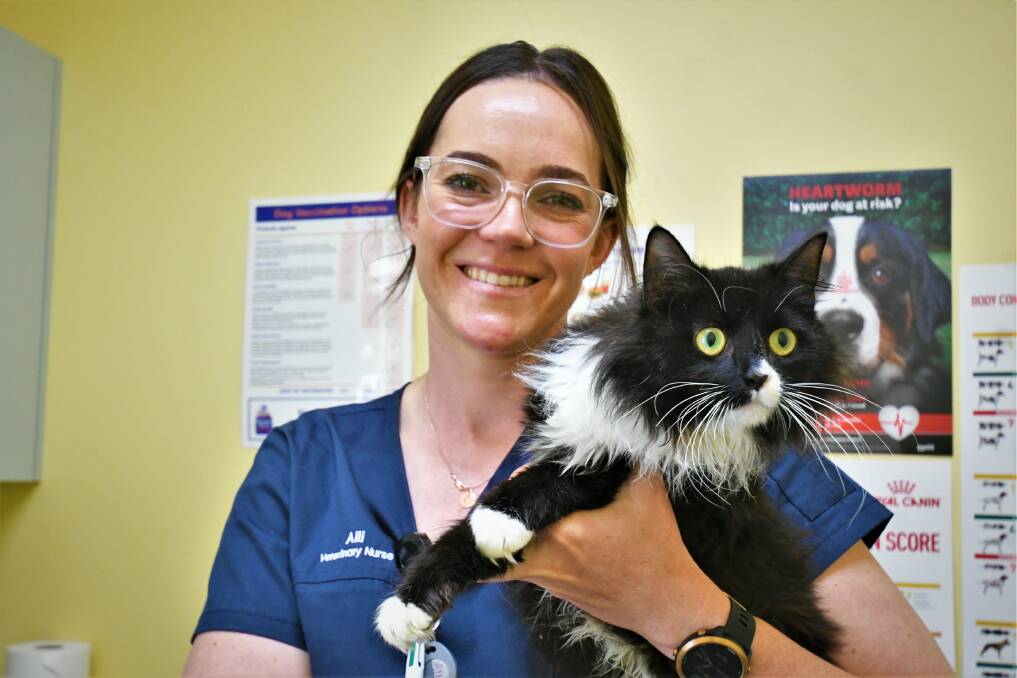
While cats are just another member of the family in many Bathurst households, it's no secret these precious felines can multiply rapidly and prove troublesome in the community.
Subscribe now for unlimited access.
$0/
(min cost $0)
or signup to continue reading
The easiest and most effective way to combat this issue is to get cats desexed, and Stewart Street Veterinary Hospital's Karissa Spindler said there's numerous positives to the procedure.
In addition to stopping unwanted litters, desexing cats can prevent a number of infections and health issues further down the track, as well as reduce the inclination to wander.
ALSO MAKING NEWS: The hard Group 10 men and the hard grounds they battled on
"Unless you're showing a cat and they have to be entire for showing, I can't think of a benefit to not desexing them," Ms Spindler said.
With cats able to start breeding from six months old, and with the potential to have up to eight kittens per litter, one cat ( and its offspring) can produce over 20,000 kittens in its lifetime.
Ms Spindler said it's up to pet owners to take responsibility and not only do the right thing by their cat but by the community.
She also encourages locals who notice a stray hanging around to take them to the pound where they can be scanned.
ALSO MAKING NEWS: NSW Labor Leader Chris Minns to speak at Light on the Hill dinner
If microchipped, the owners will be contacted.
"It's a community problem ... it's not going to change until pet owners take responsibility," Ms Spindler said.
"If it's a stray, take it to the pound and they can scan it and hopefully find its owners."
With a number of rescue groups and adoption programs in the Bathurst region, there's plenty of options to give a cat a new life.
Ms Spindler said even if someone adopts an older cat they can still safely be desexed, and if price is an issue, locals are encouraged to make the most of council's desexing program.
The initiative will run again around the November/December period and encourages locals to get their pets desexed, vaccinated and microchipped.
ALSO MAKING NEWS: Inflation relief will depend on global market, says CSU economics expert
The desexing program is run in partnership with the RSPCA and is open to pensioners and healthcare card holders who are residents within the Bathurst local government area [LGA].
The prices range from $40 for male cats, $55 for female cats and male dogs, and $70 for female dogs.
"That includes vaccination, microchipping and desexing. Microchipping alone costs $45 and you can get everything done for a male cat for $40," Ms Spindler said.
"So really there's no excuse not to do it."
To enquire about getting a pet desexed or for more information of the desexing program, locals can contact Stewart Street Veterinary Hospital or Bathurst Central Animal Hospital.
Our journalists work hard to provide local, up-to-date news to the community. This is how you can access our trusted content:
- Bookmark www.westernadvocate.com.au
- Make sure you are signed up for our breaking and regular headlines newsletters
- Follow us on Twitter
- Follow us on Instagram
- Follow us on Google News


